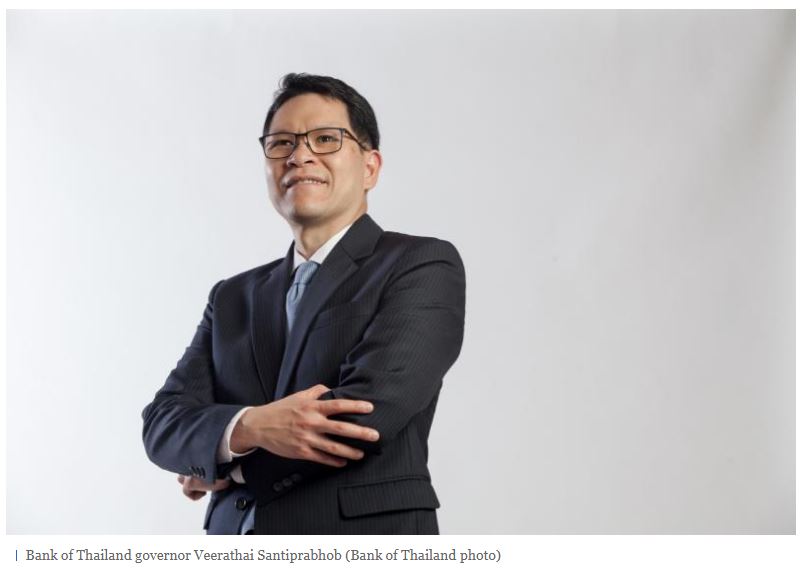Thailand: BoT rules out IMF support, cites strong fundamentals
Thailand does not need financial assistance from the IMF during the pandemic because of the country’s strong economic fundamentals and the financial sector, says the Bank of Thailand.
“There are some concerns that Thailand could ask for financial assistance from the IMF to overcome this crisis, similar to the Asian financial crisis in 1997. But we do not need it because of the country’s strong economic fundamentals after learning from the 1997 financial crisis,” said governor Veerathai Santiprabhob on Monday.
There are 102 IMF member countries that require financial support from the IMF, from a total of 195 member countries, he said.
Thailand’s strong economic fundamentals are based on a positive current account surplus, low foreign debt and the high capital base of financial institutions, all supporting assistance measures during the crisis, said Mr Veerathai. This should support the country’s gradual economic recovery.
On Aug 20, 1997, the IMF approved a stand-by credit for Thailand, authorising drawings of up to 2.9 billion special drawing rights (SDR) or about US$3.9 billion.
On July 31, 2003, Thailand completed early repayment of its outstanding obligations of SDR 68.75 million (about $96 million).
Before that meltdown 23 years ago, Thailand’s economy became increasingly vulnerable since 1993 after a previous decade of economic success from widening current account deficit, high external debt burden and a serious weakness in the financial system, particularly-but not exclusively-in finance companies, according to the IMF statement.
On July 2, 1997, the Thai authorities introduced a managed float of the baht, which subsequently depreciated about 20% against the US dollar during the month.
However, reports that borrowers were facing increasing difficulties rolling over short-term debt intensified outflows from finance companies. Accelerated injections of financial support from the Financial Institutions Development Fund precipitated a widespread loss of confidence, said the IMF.
“The Thai economy could see a swoosh-shaped recovery. The economy will take around two years to recover,” said Mr Veerathai.
The central bank affirmed an existing assumption that Thailand’s economy had bottomed out in the second quarter attributed to economic activities being affected by lockdown policies worldwide.
With the easing of lockdown measures by the government, this will gradually improve economic momentum in the third and fourth quarters.
Thailand’s economy will return to a normal growth rate similar to the pre-Covid-19 outbreak in 2022. The central bank forecasts GDP to shrink by 8.1% this year.
Source: https://www.bangkokpost.com/business/1954519/bot-rules-out-imf-support-cites-strong-fundamentals


 English
English




